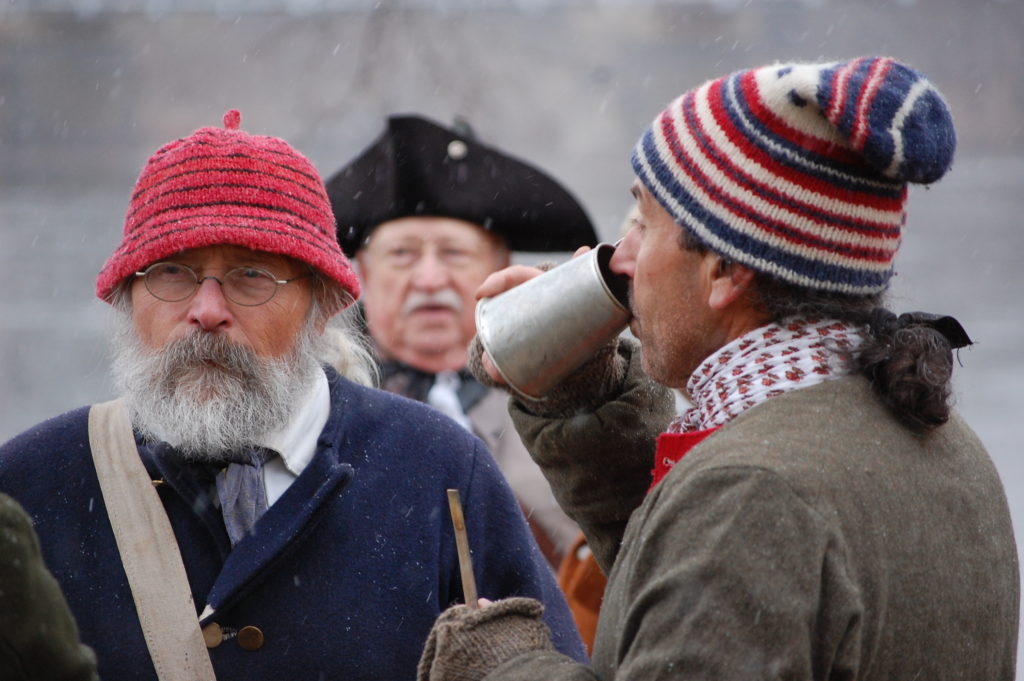
We’ve all heard the tale: the Hessian soldiers quartered in Trenton enjoyed a few well-earned Christmas drinks. So when Washington’s troops arrived in the wee hours of the morning, some Hessians were reeling from the effects of celebrating.
But this is a well-circulated myth rather than documented fact.
“Contrary to what’s often implied and taught, there’s no evidence that the Hessians were drunk from celebrating Christmas when the Battle of Trenton began on the morning of December 26, 1776,” says Bunkie Maddock, a historical interpreter at Washington Crossing Historic Park.
Colonel Johann Rall, the commanding officer of the Trenton barracks at the time, had received three seemingly legitimate warnings of a pending attack by the Continental Army, according to Maddock. One came from a British spy, another from a Loyalist doctor in town, and another from two colonial deserters.
Beyond the warnings, the reality of the scenario suggests the Hessian soldiers were in no mood to get drunk, Maddock says.
They were exhausted from several weeks of relentless harassment and attacks on their patrols and post stations, including Christmas night, when 40 colonial soldiers surprised an outpost. Later that night, Rall led the entire garrison in an unsuccessful attempt to track down the attackers.
Even when they weren’t on sentry duty, there was little rest to be had. The Hessian soldiers were forced to sleep in full uniform, on top of their cartridges and with their muskets in hand.
When shots rang out on the morning of December 26, the alarm was sounded immediately, and Rall was summoned from his quarters, according to Maddock. The Hessian troops assembled quickly.
Several have written that no drunken or disorderly behavior was observed among the Hessians during that battle. And General Washington later commented favorably on the conduct and performance of the Hessian outpost guards. They fought vigorously, Maddock says.
Rall knew Washington’s army was very strained. But, as was a recurring theme throughout the war, he underestimated the Continental Army’s passion for freedom.
“Rall also believed they were surrounded,” Maddock says. “He was told the bridge over the Assunpink Creek was guarded by Colonial soldiers when it wasn’t.”
Ironically, after the battle, the Colonial soldiers discovered 40 hogsheads of rum, according to Maddock. Several of them were consumed before Washington ordered the remainder destroyed. Aware that 900 Hessian prisoners needed to be relocated and his wounded soldiers needed to be tended to, Washington didn’t see any room for celebration.
As for Rall, he was shot twice during the battle and carried back to his headquarters, where he died that night. Before his death, he requested a formal surrender to Washington, who promised to treat the Hessian prisoners well.

